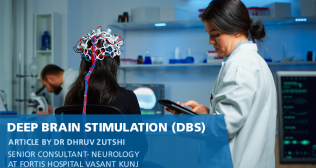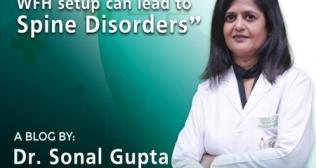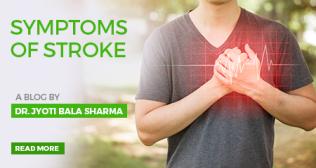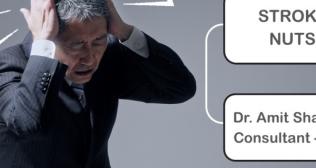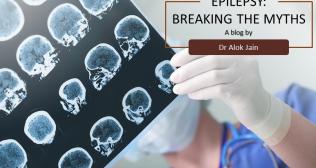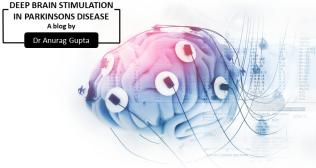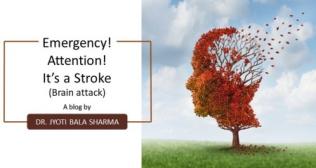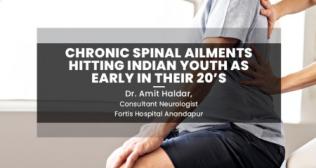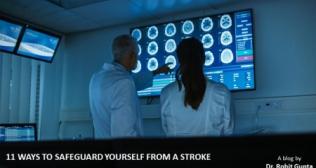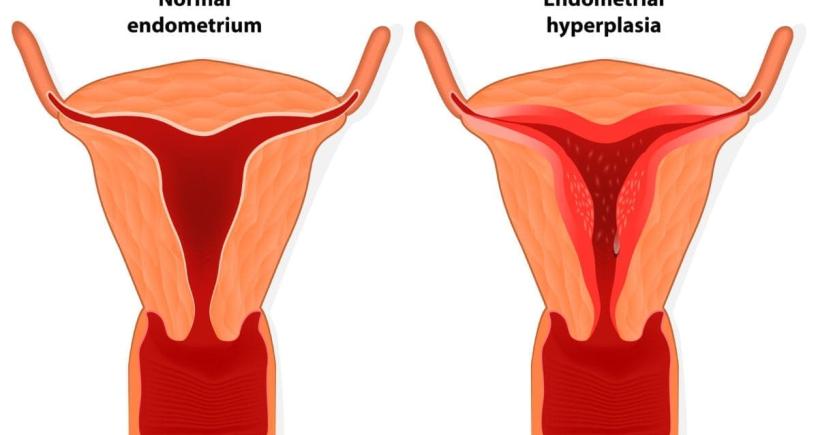
Exploring Congenital Adrenal Hyperplasia: Symptoms and Causes
Congenital adrenal hyperplasia (CAH) is a group of genetic diseases affecting the adrenal glands. The adrenal glands are walnut-sized organs located above each kidney. They are responsible for producing crucial hormones like cortisol, aldosterone, and androgen for proper functioning. The hormones play a vital role in preparing the body for illnesses, injuries, and stressful situations, regulating blood pressure, sugar, and salt levels, and initiating puberty as well as normalizing growth and development. The condition affects people of all age groups and as per data, classic CAH affects one person in every 10,000 to 15,000 people in the US and Europe and nonclassic one in every 100 to 200 people.
During congenital adrenal hyperplasia, a certain enzyme is absent in the adrenal glands that hinders the production of cortisol and aldosterone hormones and causes excessive androgen production.
There are two kinds of congenital adrenal hyperplasia. Classic and nonclassic. Classic CAH usually occurs at birth and can be fatal if not treated on time. The symptoms include shock and coma and symptoms connected to sexual development. Nonclassic CAH is comparatively milder and doesn’t show until the later stages of childhood, adolescence, or adulthood. The condition doesn’t always show symptoms and if it does, they are related to sexual development.
Congenital adrenal hyperplasia can produce multiple symptoms based on the type and gender of the person.
Symptoms of classic CAH
Since classic CAH leads to excessive production of the hormone, androgen, the symptoms are related to the sex hormones. Additionally, the body doesn’t produce enough cortisol which leads to blood pressure, blood glucose, and energy levels being affected.
They include:
- Ambiguous genitalia- This occurs at birth to female infants. The external sex organs resemble those of a male although internally they are typically female organs. For instance, the clitoris may be enlarged and look like a penis. The labia may be partly sealed or closed and resemble a scrotum. The tube through which the urine passes and the vagina openings may be merged into one. The uterus, fallopian tubes, and ovaries grow in a different manner than usual. In male infants, the penis is larger than usual.
- Adrenal crisis- The lack of cortisol and aldosterone or both hormones can cause adrenal crisis which can damage the adrenal glands and other stressors. The symptoms include pain in the abdomen, tiredness, and fatigue. This can be life-threatening.
- Too much androgen- In older children, there are premature signs of puberty due to excessive androgen. This includes voice cracking, acne breakouts, and early pubic, armpit, and facial hair along with the development of muscles, a deep voice, and abnormal menstruation. The hormone can lead to short height in children because children grow fast with their bones more developed for their age. In females, it leads to too much facial and body hair and a deep voice.
- Presence of non-malignant testicular tumors.
- Infertility- Females can develop irregular menstrual cycles or may not have periods at all. Some women may face challenges while becoming pregnant. Infertility can happen in men too sometimes.
- Dehydration.
- Low levels of sodium.
- Low blood pressure.
- Irregular heartbeats.
- Low blood glucose.
- Vomiting.
- Diarrhea.
- Loss of weight.
- Shock.
- Excessive acid in the blood.
Symptoms of nonclassic CAH
Nonclassic CAH often has no symptoms when the infant is born and is usually detected when the baby is screened with blood tests.
Females who have nonclassic CAH usually have the following symptoms:
- Acne breakouts.
- Early onset of puberty.
- Too much and premature growth of facial and body hair.
- Deepening of the voice.
- Irregular menstruation or no periods happening at all.
- Infertility or challenges while getting pregnant.
In males, the symptoms include:
- Baldness that follows a male pattern.
- Enlargement of the penis but small testicles.
The common symptoms include:
- Rapid growth in the childhood years with bones that are more developed than normal.
- Shorter height as the expected final height.
- Severe acne.
- Premature onset of puberty with excessive body and facial hair.
There may be times when the symptoms of nonclassic CAH may be mistaken for those occurring because of a hormonal condition known as polycystic ovary syndrome that occurs during the reproductive years.
The causes of congenital adrenal hyperplasia?
The main cause is the shortage or the lack of the enzymes called 21-hydroxylase and 11-hydroxylase. The enzyme levels are disrupted. In normal cases, each person receives two copies of every gene. One from each parent. If a person inherits a mutated copy of the gene it results in congenital adrenal hyperplasia. This makes the condition an autosomal recessive disorder. There is no cure for the condition but with proper treatment and management people can lead normal lives.
Popular Searches :
Hospitals: Cancer Hospital in Delhi | Best Heart Hospital in Delhi | Hospital in Amritsar | Hospital in Ludhiana | Hospitals in Mohali | Hospital in Faridabad | Hospitals in Gurgaon | Best Hospital in Jaipur | Hospitals in Greater Noida | Hospitals in Noida | Best Kidney Hospital in Kolkata | Best Hospital in Kolkata | Hospitals in Rajajinagar Bangalore | Hospitals in Richmond Road Bangalore | Hospitals in Nagarbhavi Bangalore | Hospital in Kalyan West | Hospitals in Mulund | Best Hospital in India | | Cardiology Hospital in India | Best Cancer Hospital in India | Best Cardiology Hospital in India | Best Oncology Hospital In India | Best Cancer Hospital in Delhi | Best Liver Transplant Hospital in India
Doctors: Dr. Rana Patir | Dr. Rajesh Benny | Dr. Rahul Bhargava | Dr. Jayant Arora | Dr. Anoop Misra | Dr. Manu Tiwari | Dr. Praveer Agarwal | Dr. Arup Ratan Dutta | Dr. Meenakshi Ahuja | Dr. Anoop Jhurani | Dr. Shivaji Basu | Dr. Subhash Jangid | Dr. Atul Mathur | Dr. Gurinder Bedi | Dr. Monika Wadhawan | Dr. Debasis Datta | Dr. Shrinivas Narayan | Dr. Praveen Gupta | Dr. Nitin Jha | Dr. Raghu Nagaraj | Dr. Ashok Seth | Dr. Sandeep Vaishya | Dr. Atul Mishra | Dr. Z S Meharwal | Dr. Ajay Bhalla | Dr. Atul Kumar Mittal | Dr. Arvind Kumar Khurana | Dr. Narayan Hulse | Dr. Samir Parikh | Dr. Amit Javed | Dr. Narayan Banerjee | Dr. Bimlesh Dhar Pandey | Dr. Arghya Chattopadhyay | Dr. G.R. Vijay Kumar | Dr Ashok Gupta | Dr. Gourdas Choudhuri | Dr. Sushrut Singh | Dr. N.C. Krishnamani | Dr. Atampreet Singh | Dr. Vivek Jawali | Dr. Sanjeev Gulati | Dr. Amite Pankaj Aggarwal | Dr. Ajay Kaul | Dr. Sunita Varma | Dr. Manoj Kumar Goel | Dr. R Muralidharan | Dr. Sushmita Roychowdhury | Dr. T.S. MAHANT | Dr. UDIPTA RAY | Dr. Aparna Jaswal | Dr. Ravul Jindal | Dr. Savyasachi Saxena | Dr. Ajay Kumar Kriplani | Dr. Nitesh Rohatgi | Dr. Anupam Jindal |
Specialties: Heart Lung Transplant | Orthopedic | Cardiology Interventional | Obstetrics & Gynaecology | Onco Radiation | Neurosurgery | Interventional Cardiology | Gastroenterologist in Jaipur | Neuro Physician | Gynecologist in Kolkata | Best Neurologist in India | Liver Transfer







